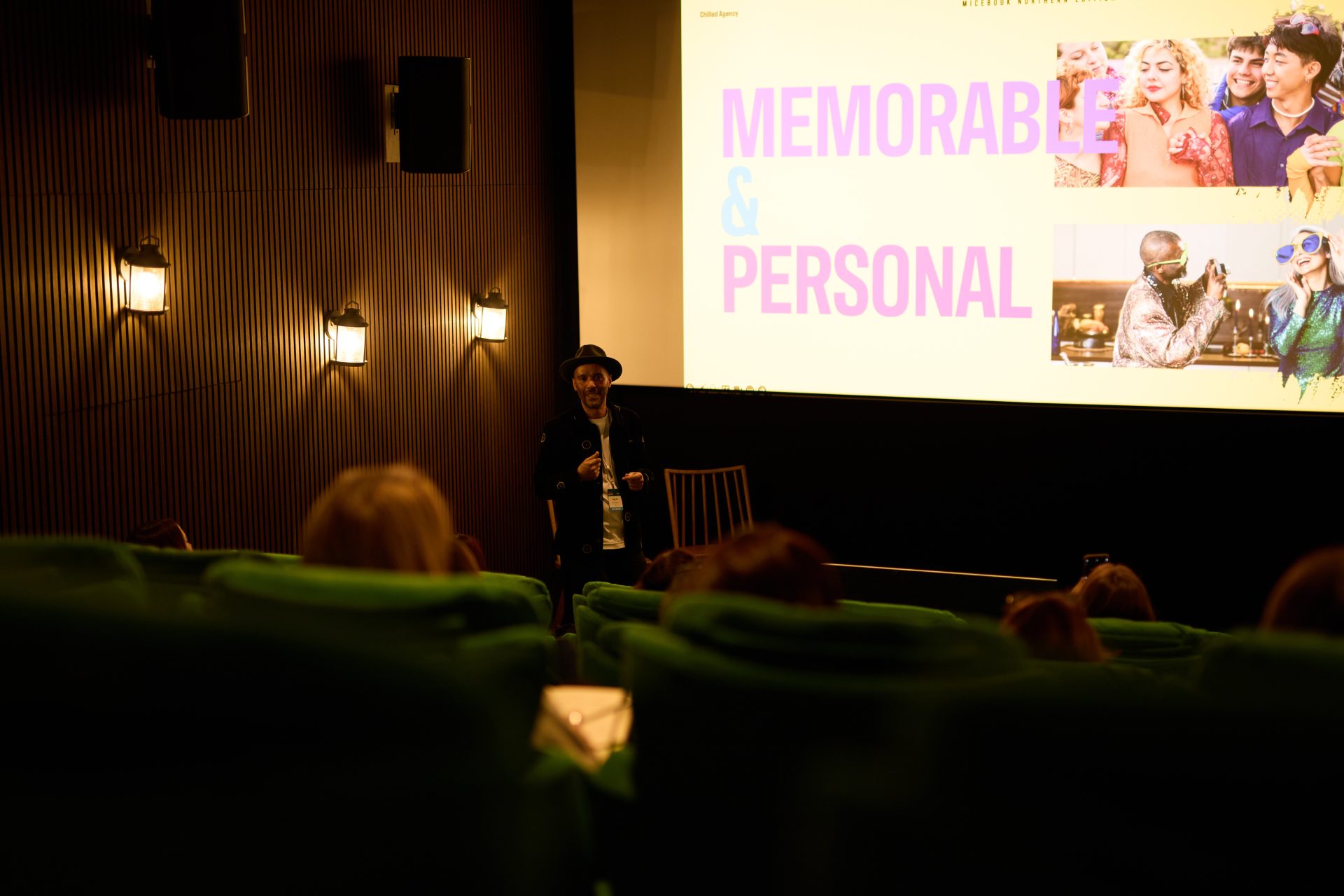At our recent micebook Northern Edition, Colin Hill, managing director of Chilled Agency, delivered an energising and thought-provoking workshop titled “Work That Plays: Lessons from B2C for B2B Success.”
Drawing on the agency’s expertise in experiential marketing and brand activation, he made a compelling case for why B2B events need to move beyond functional formats and start taking cues from the bold, immersive world of B2C experiences.
Here are some key takeaways from the session:
1. It’s Time for B2B to Get Emotional
The central message? Emotion drives engagement—and memory. While B2B events have historically focused on information delivery and ROI metrics, today’s audiences expect more. They want experiences that make them feel something.
“If we can’t create a feeling, we won’t create a memory,” said Hill. “And if we don’t create a memory, we’ve wasted our moment.”
He challenged B2B event planners to move away from passive experiences and instead think like consumer brands—delivering moments that spark curiosity, joy, surprise, or even nostalgia.
2. Borrow Boldness from B2C—Tactics That Translate
From pop-ups and placemaking to sensory design and storytelling, Hill highlighted B2C techniques that can be effectively adapted for B2B settings.
He encouraged planners to explore:
Immersive environments: Spaces that physically transport attendees out of the ordinary.
Multi-sensory elements: Lighting, scent, texture, and sound to deepen emotional impact.
Narrative structure: Crafting events with a clear beginning, middle, and emotional end.
Interactive design: Giving attendees agency and choice, rather than passive consumption.
“In B2C, we design with the heart in mind. B2B needs to do the same—because the people we’re trying to reach aren’t businesses, they’re humans.”
3. ROI of Experience: Beyond the Numbers
While data matters, Hill believes that the real return on experience comes from long-term impact—brand affinity, community building, and sustained engagement.
“The experience is the campaign,” he explained. “The way we make someone feel in the moment determines how they talk about us afterward. That’s ROI you can’t always measure in a spreadsheet—but you’ll see it in loyalty, referrals, and reputation.”
He urged attendees to measure emotional outcomes as well as traditional KPIs. This might include tracking:
*Sentiment and mood pre/post-event
*Willingness to share or refer
*Unprompted recall weeks or months later
4. Don’t Just Communicate—Curate
One of the most powerful shifts Hill advocates for is seeing event design as curation, not just communication. In a world overwhelmed by content, experience is what cuts through.
“Whether we’re working with brands, businesses, or buyers, at the end of the day, it’s all Human to Human. If we want to stand out, we need to connect—not just inform. People don’t remember decks—they remember how you made them feel.”
Whether it’s through design, storytelling, or intentional space planning, B2B planners can orchestrate moments that matter.
5. Keep Play in the Process
Finally, Hill reminded attendees that creative bravery starts within the team. “If your team isn’t having fun building it, no one’s going to enjoy being part of it.”
He encouraged event professionals to embrace playfulness, experimentation, and collaboration, suggesting that the best ideas come when teams feel safe to be bold.

